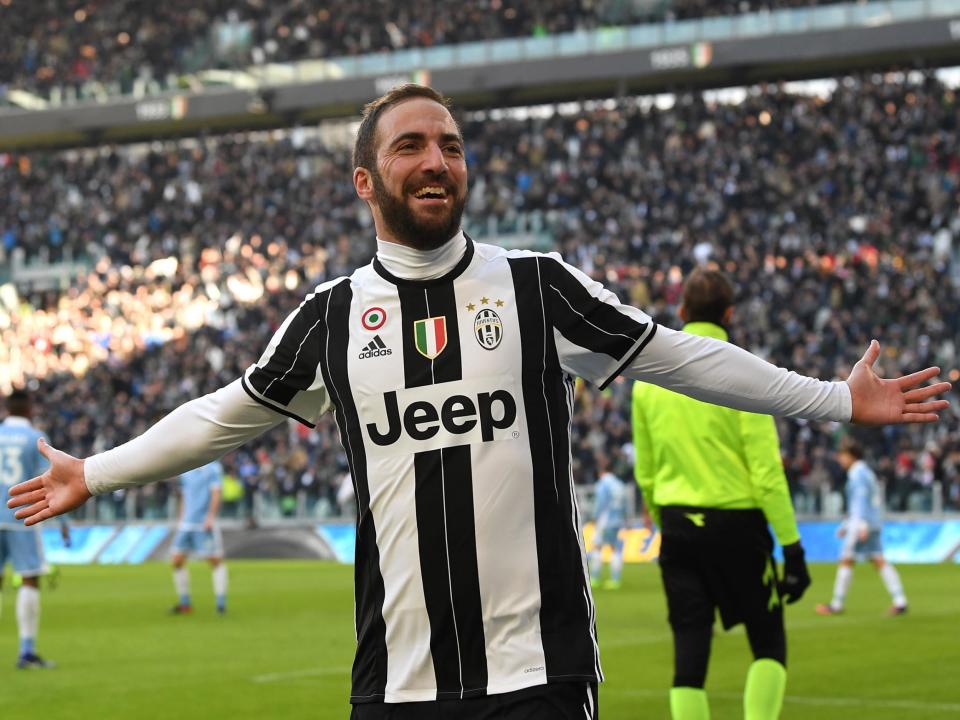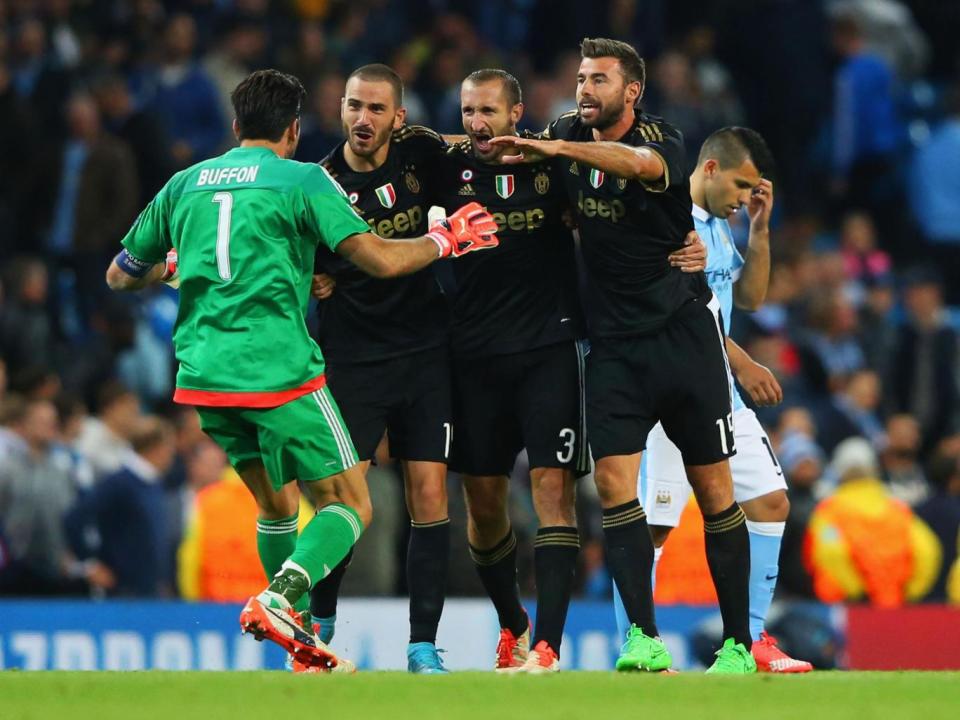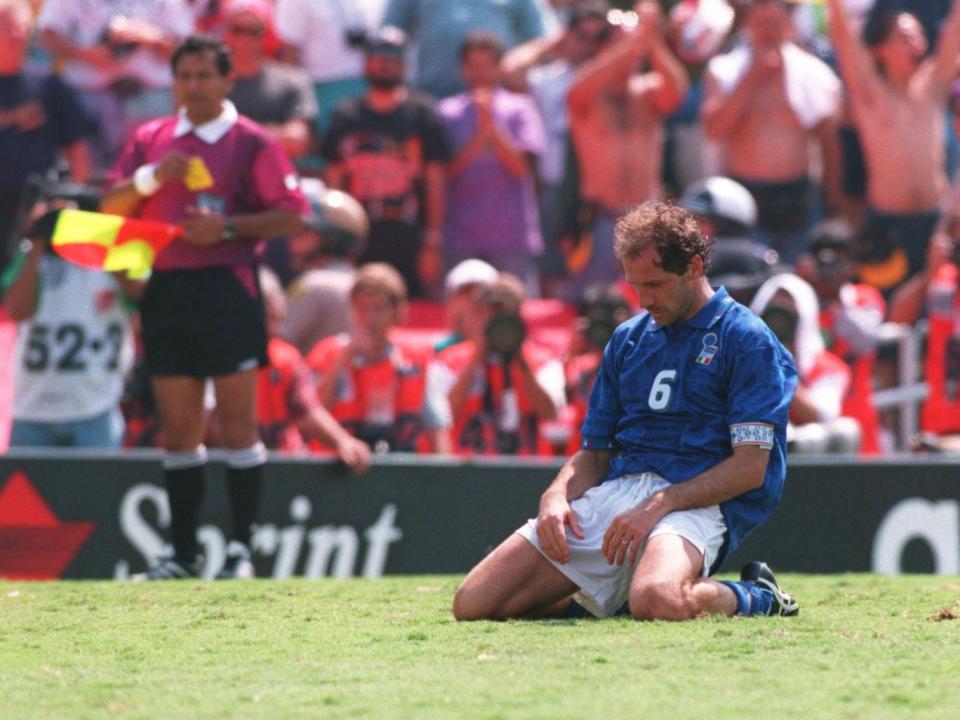From the land of catenaccio to the highest scoring league in Europe: how Serie A lost its love of defending

If Annibale Frossi were still alive today, a look at the results in Serie A would probably have him scheduling an appointment with the optician. You can imagine him thinking the glasses he used to wear even while playing on the wing for Italy were playing tricks on him. One hundred and twelve goals in just 39 games this season!! The highest goals per game ratio [2.87] in Europe’s top five leagues?! Ten games won by three or more goals. This isn’t Serie A as Frossi knew it. Time for a new prescription.
What makes Frossi such an interesting figure in the history of Italian football is the inherent paradox he represented. With seven goals in four games, he was the top scorer at the Berlin Olympics, where Italy won gold. But Frossi is better known for first expressing an idea that was later popularised and is, to this day, more readily associated with Gianni Brera, the journalist-cum-ideologue whose legacy is not only the language he created to talk about the game in Italy, but the influence he had on determining its identity and everything we think we know about it.
Frossi and Brera were the founding fathers of the “goals are overrated” club. Indeed, nothing gave them greater satisfaction than a goal-less draw. “0-0 is the perfect result,” Frossi opined, “because it is the expression of total balance between the attack and the defence.” There have been just three 0-0s in Serie A this season. We haven’t had one since the international break. Still, encouragingly for Frossi and Brera, that’s more than at this stage two years ago when Serie A went the opening four match-days without one for the first time since 1949.
An improvement you might say then. Although to be honest it’s doubtful Frossi and Brera would see it like that because while the teams still play in the same colours, they would probably no longer recognise Serie A. The league has been trending away from its catenaccio heritage for some time. Last year, for instance, it averaged more goals-per-game [2.96] than any of Europe’s top five leagues. Even La Liga [2.94]. And a year on from Gonzalo Higuain breaking the single-season scoring, which stood for 66 years in Serie A, five players scored more than 20 goals for only the fourth time in the history of the league.
A repeat would not come as too big of a surprise. Just look at how the season has started. Four players are averaging more than a goal a game. Paulo Dybala and Dries Mertens both scored hat-tricks at the weekend. For Dybala, it wasn’t even his first of the campaign. Mauro Icardi bagged a brace in each of his first two appearances for Inter, while Ciro Immobile is on fire at the moment with 10 goals in eight games for club and country.
In summary, a defenders’ league has metamorphosed into a strikers’ league, which takes us back to what Luca Toni said after he became the oldest top scorer since Dario Hübner in 2015; defending isn’t what it used to be.
Of course that could be said about football more generally these days. Just as Arrigo Sacchi’s Milan team provoked a shift towards attacking football in the late 80s, albeit much more contained in its influence and a lot less sustained, Pep Guardiola’s Barcelona remain an inspiration for many. Priorities have changed for goalkeepers who are now judged more on what they can do with their feet than their hands. Centre-backs are being asked to play like midfielders and, in some cases, have been replaced by them. As for full-backs, it's enough to look at the number Inter’s new signing Cancelo chose when he joined from Valencia. He wears the No 7 and evidently sees himself as a winger.

“They’re ‘pretend’ full-backs,” Franco Baresi explained to Corriere della Sera. “They absolutely don’t know how to defend. It’s not their job.” In the same paper, Beppe Bergomi blamed rule changes in favour of attacking play, and technology for the pendulum swinging away from defending. “Defenders’ attitudes have changed,” he said. “They now know that every little indiscretion will get picked up by the TV cameras, so they’re more careful, more cautious. Defenders are more afraid. They don’t get as tight and that’s an advantage for strikers.”
Gigi Buffon got the same impression after the first fortnight of playing under football’s Big Brother, the Video Assistant Referee. Penalties were given against Juventus in each of their opening two games for fouls that match officials missed with the naked eye, errors Buffon did not consider grave enough to warrant the intervention of VAR. “We gave away three penalties in 38 games last season. At this rate, we’ll give away 58.”
The VAR appear to have dialled it down after the international break, leaving more discretion to the referee and the reality is that the number of penalties awarded so far in Serie A is currently in line with last season's average. In fact, VAR has arguably stopped the goals-per-game ratio getting even more out of hand. Take Sunday’s game between Milan and Udinese, which would probably have ended 4-2 and not 2-1 without it.
Heightening our sensitivity to the goal glut are two things: first is a debate about the competitiveness of the league which was brought into focus by Serie A’s travails in the Champions League last week. “Wake up Italy” was La Gazzetta dello Sport’s front page on Thursday. Juventus, Roma and Napoli mustered just a point from the nine available on the continent in midweek. And yet on their return to domestic action at the weekend, they blew their opponents away amid growing self-awareness that perhaps too much shouldn’t be read into results at home.
Dominant performances in Serie A have tricked people into thinking that its crème de la crème are a match for anyone in Europe. After last season’s Champions League final Juventus stood accused of underestimating Real Madrid, just as Italy were following their defeat to Spain at the Bernabeu earlier this month. Maybe there is an element of truth to it. Although it must be said Juventus fully deserve consideration as one of Europe’s elite after reaching not just one but two Champions League finals in the last three years. As for Italy, playing 4-2-4 away in Spain only feeds into the narrative of calcio repudiating its tradition and losing because of it.
But we digress. Let’s return to the domestic state of play. Last year you could tell by Christmas, if not earlier, who was in the conversation for Europe and who risked going down to Serie B. Only Crotone’s great escape flipped the script. Too many teams had nothing to play for, which is why the average number of manager dismissals was also down, because for eight of the nine months of the season only Palermo, Crotone and Pescara, joined later by Empoli and Genoa, seriously risked relegation. As many as seven teams had nothing to play for, which some would argue helped Roma and Napoli set new club record points totals not to mention a number of strikers rack up loads of goals as by springtime these goal-ravenous centre-forwards were playing against defences whose constituents were already planning their holiday.
Fears of it happening all over again are premature although it is also true that three teams find themselves on maximum points after four matchdays for the first time since 1960 and there is already talk, premature in my opinion, of a breakaway.

Also under scrutiny is the standard of the teams coming up from Serie B. More and more are reaching the big time on the back of double promotions. It was true of Frosinone in 2015 and happened again this year with Benevento and SPAL. Watching them, you can't escape the feeling that the top flight is too much too soon. At the weekend the newly promoted were whooped by an aggregate score of 11-0 and the debate about Serie A returning to an 18-team league returned to the surface.
The other thing serving to deepen the feeling Italian football is losing its religion is linked to Juventus, the benchmark for great defending, not just in Italy, but the world over.
September 9 felt like a watershed moment in the recent history of the league as it was also the first game the Bianconeri played in more than seven years without Gigi Buffon and any member of the BBC (Bonucci, Barzagli and Chiellini) in the starting XI. In the end they still kept a clean sheet, but now Leonardo Bonucci is gone, the centre of gravity at Juventus seems to be moving from the defence to the attack. After defeat to Real Madrid in Cardiff in June, Massimiliano Allegri’s assessment of what the team needs to make another breakthrough in Europe is “more goals”.
The players signed for that purpose are yet to establish themselves in the first team. But a shift is already discernible. Juventus are off to their most prolific start since 1959. But Allegri doesn't look entirely comfortable with it. Juventus have conceded 10 more shots than last year when they had a much tougher schedule. The number of chances created against them is also up from 15 to 24, and this is their worst start to a season, from a defensive point of view, since the days of Luigi Maifredi, the former champagne salesman who soon fizzled out in Turin.
After Sunday’s win at Sassuolo, Allegri reminded everyone that the team with the best defence usually wins the Scudetto. It’s been that way for a decade. But maybe this year, for the first time since 2003-04, we’ll see that change. Spare a thought for Frossi and Brera.

 Yahoo Sport
Yahoo Sport 





































